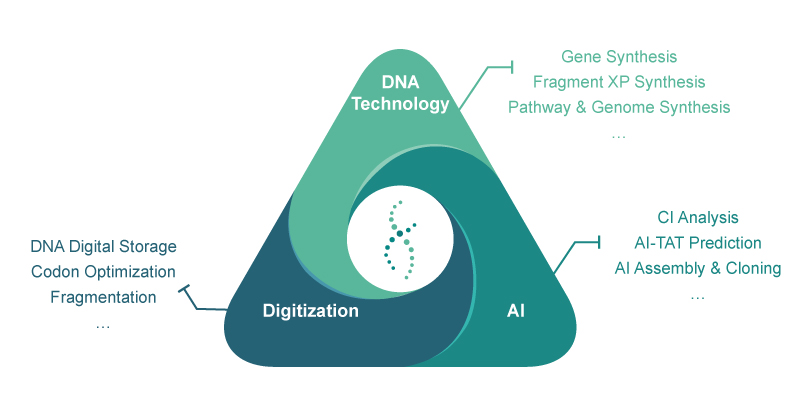In today’s rapidly evolving biotechnology landscape, understanding the nuances of dna gene synthesis can provide organizations with a significant edge. By leveraging this technology, businesses can streamline their research and development processes, enhance product offerings, and ultimately drive innovation in various sectors.
The Fundamentals of DNA Gene Synthesis
DNA gene synthesis is a cutting-edge process that allows for the artificial creation of specific sequences of nucleotides. This technology has transformed molecular biology by enabling researchers to design custom genes tailored to their experimental needs. Key attributes include high accuracy, scalability, and rapid turnaround times—features that are increasingly important as market demands shift towards personalized medicine and synthetic biology applications. As we observe current market trends, it becomes evident that companies investing in advanced gene synthesis capabilities are better positioned to capitalize on emerging opportunities.
Diving Deeper into Custom DNA Synthesis and Market Trends

custom dna synthesis plays a pivotal role in shaping market dynamics within the biotech industry. The demand for bespoke genetic constructs is surging due to advancements in areas such as CRISPR technology and therapeutic development. Companies offering custom solutions not only cater to academic institutions but also support pharmaceutical firms looking for unique compounds or pathways. Current trends indicate an increasing preference for providers who can deliver high-quality products quickly while maintaining cost-effectiveness—a critical factor driving competition among service providers.
The Role of Synbio in Market Trends
Synthetic biology (Synbio) stands at the forefront of modern biotechnological innovations, significantly influencing market trends related to DNA gene synthesis. This interdisciplinary field combines principles from engineering with biological sciences to create new biological parts or systems. As industries explore sustainable solutions through engineered organisms—be it biofuels or pharmaceuticals—the reliance on precise gene synthesis technologies grows stronger. The trend towards integrating Synbio approaches into traditional manufacturing processes highlights how essential these tools have become across multiple sectors.
Conclusion: Embracing Change Through Innovation
In summary, the landscape surrounding DNA gene synthesis is characterized by rapid technological advancements and shifting market demands driven by customization and synthetic biology applications. Organizations that recognize these trends will be well-equipped to innovate effectively while meeting consumer expectations more efficiently than ever before.


